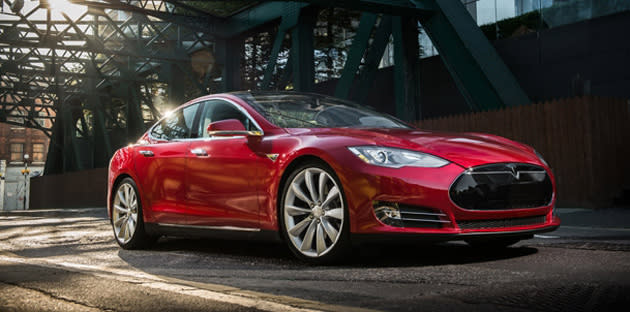FTC: State bans on Tesla's direct sales model are hurting competition

Tesla has just gained a valuable ally in its battle to sell cars directly to customers: the Federal Trade Commission. The regulator now argues that state bans on direct sales are "protectionist," propping up the traditional dealership business model rather than protecting companies from unfair abuses by automakers. It's the "competitive process" that should decide which sales model is better, not the law. The FTC also doesn't buy the notion that Tesla's modest US sales (22,500 in 2013) are a threat to the wider industry (15 million). It believes that the only thing at risk is the old way of buying cars, which might not be necessary now that customers can skip the sales pitch and do most of their research online.
Not surprisingly, Tesla agrees "wholeheartedly" that state rules need to change. The National Automobile Dealers Association is less than enthusiastic, however. It maintains that customers "lose virtually all bargaining power" in a middleman-free environment, since they couldn't simply go to an independent store to haggle for a better deal.
The FTC's criticism stops short of announcing any formal action, and it's not clear that anything will change. The Commission exists primarily to regulate companies, and it may have a tough time pressuring individual states; right now, it's just hoping that legislators will see the bans as anti-competitive and reject them accordingly. Still, it's clear that dealers shouldn't expect much FTC sympathy if the dispute over Tesla's sales strategy ever reaches the federal level.
